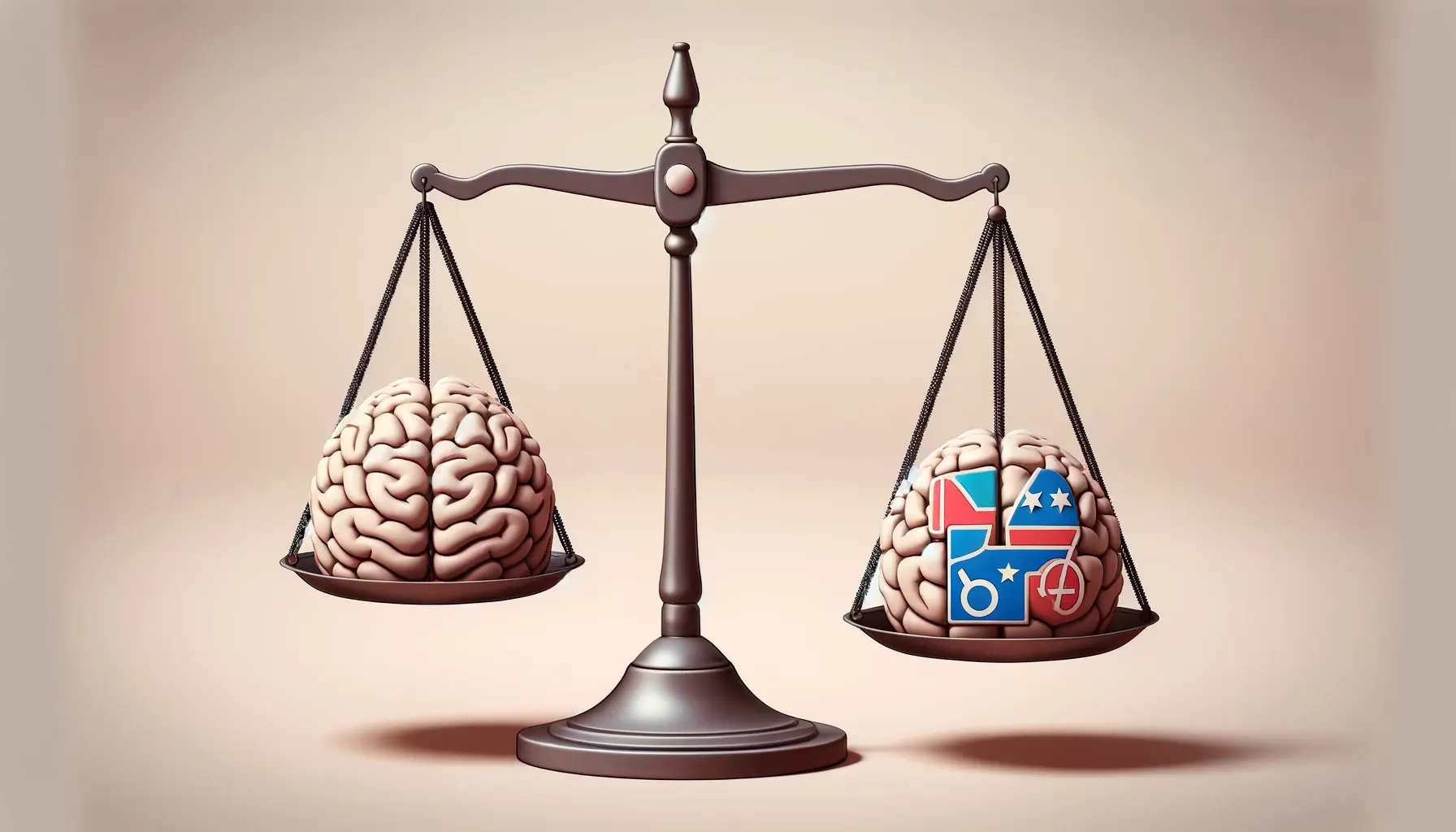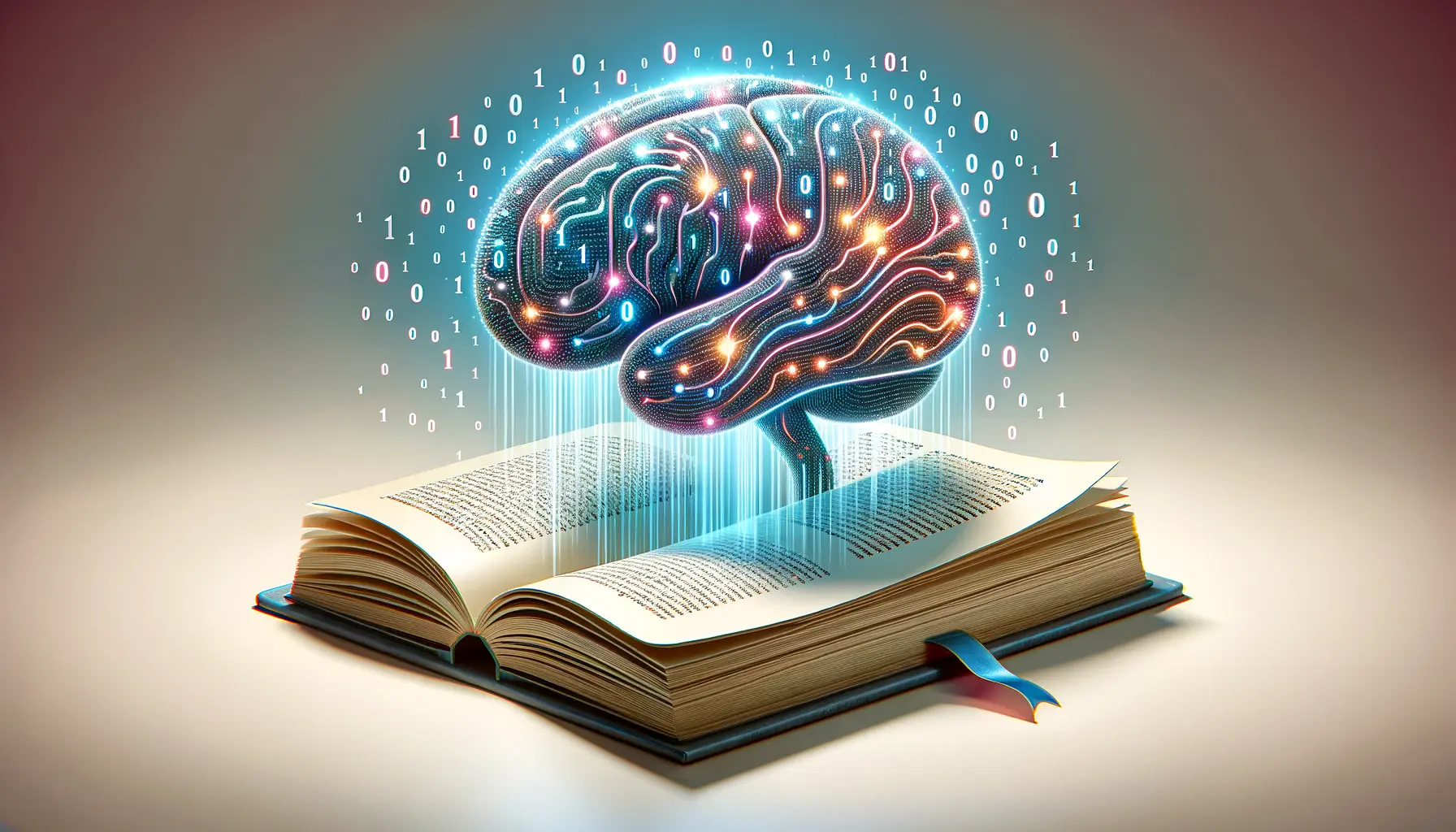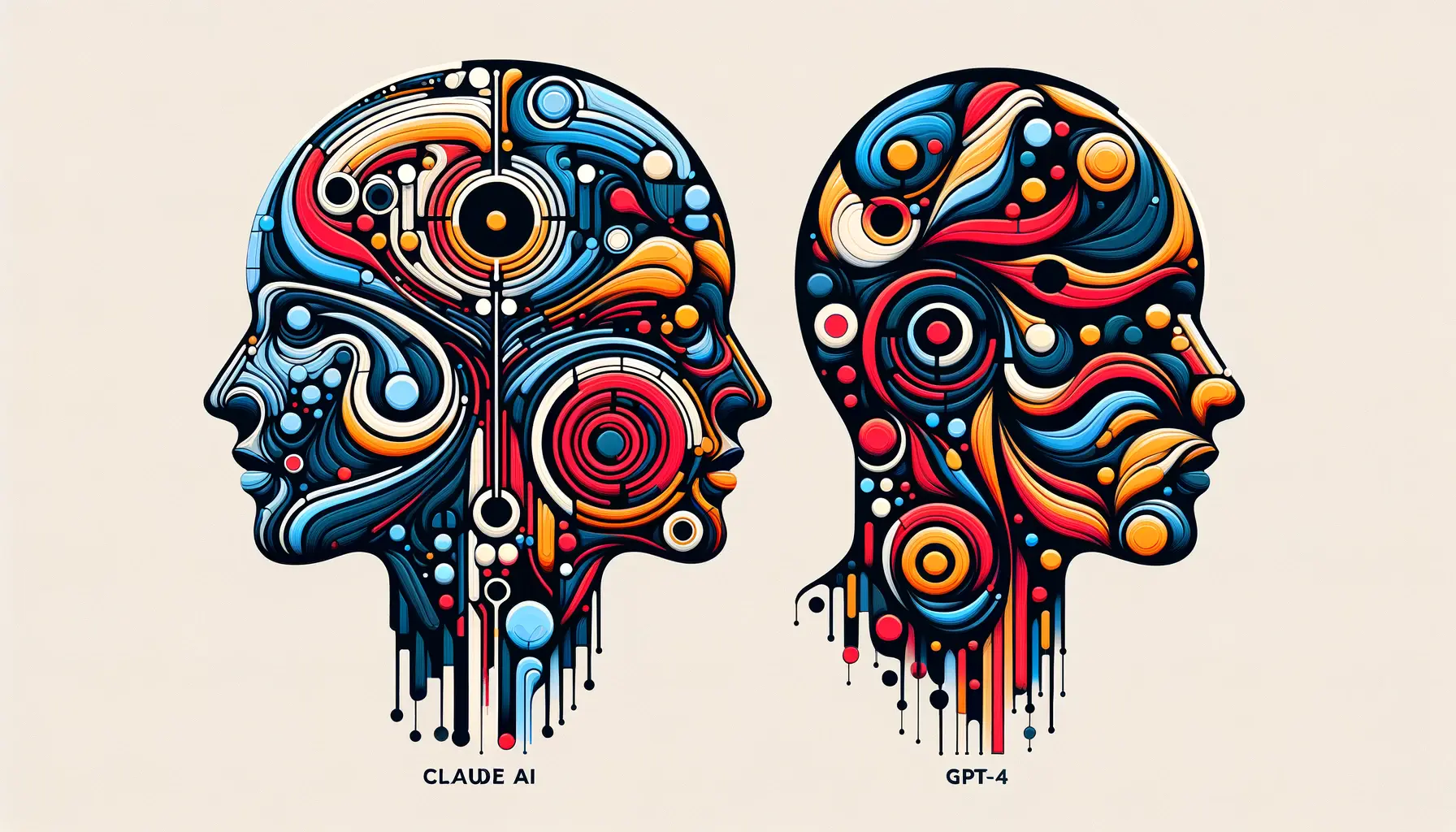In the rapidly evolving landscape of artificial intelligence, the quest for unbiased technology has become a cornerstone of ethical AI development.
Grok AI, emerging as a significant player in this arena, has sparked widespread discussion regarding its stance on political neutrality.
This discourse is not merely academic but touches on the very fabric of how AI technologies interact with, influence, and are shaped by societal norms and political ideologies.
As we delve into the intricacies of Grok AI’s design and operational ethos, it becomes imperative to scrutinize its political neutrality, a feature that stands at the crossroads of technology and ethics.
The conversation around Grok AI and political neutrality is not just about the algorithms that power it but also about the broader implications for AI’s role in society.
In an age where information is both currency and weapon, the political leaning of such a powerful tool cannot be overlooked.
This analysis aims to shed light on the mechanisms Grok AI employs to maintain neutrality, the challenges it faces in doing so, and the broader implications for the AI industry.
By understanding these dynamics, we can better appreciate the complexities of creating AI systems that serve the public good while remaining impartial in the political arena.
- The Genesis of Grok AI and Political Neutrality
- Strategies for Maintaining Neutrality
- Impact of Political Neutrality on User Trust
- Neutrality vs. Censorship: Navigating the Thin Line
- Global Perspectives on AI Neutrality
- Future Directions in AI Neutrality
- Integrating AI into Society: Ethical Considerations
- Conclusion: The Quest for Political Neutrality in AI
- Grok AI Political Neutrality FAQs
The Genesis of Grok AI and Political Neutrality
Understanding Grok AI’s Foundation
The inception of Grok AI is rooted in the ambition to create a cutting-edge artificial intelligence system capable of understanding and interacting with human language in a way that is both profound and nuanced.
Developed by a team of AI researchers and engineers, Grok AI was designed with the intention of pushing the boundaries of natural language processing and machine learning.
This ambition, however, also necessitated a foray into the realm of ethics and neutrality, particularly in the politically charged environment of today’s digital age.
From its very beginning, Grok AI was envisioned as a tool that would transcend the limitations and biases inherent in many of its predecessors.
The developers recognized early on that achieving political neutrality was not just a technical challenge but a philosophical one, requiring careful consideration of the data sources, training methods, and algorithmic design.
This foundational approach set the stage for Grok AI’s journey towards becoming a politically neutral platform, a goal that remains central to its mission.
Challenges in Achieving Political Neutrality
Achieving political neutrality in AI is a daunting task, fraught with challenges that range from technical hurdles to ethical dilemmas.
One of the primary obstacles is the inherent bias in the data used to train AI systems.
Since AI learns from vast datasets, any political bias present in the data can be inadvertently learned by the AI, leading to skewed outputs.
Grok AI’s developers have had to meticulously curate and balance their datasets to mitigate this risk, a process that is both time-consuming and complex.
Another significant challenge lies in the interpretation of neutrality itself.
Political neutrality is not a binary state but a spectrum, with varying degrees of interpretation and application.
For Grok AI, navigating this spectrum has involved continuous testing, feedback, and refinement to ensure that its responses do not favor one political ideology over another.
This iterative process is crucial for maintaining the delicate balance required for true neutrality.
It’s important to note that the pursuit of political neutrality in AI, such as Grok AI, is an ongoing process that requires constant vigilance and adaptation to evolving political landscapes and societal norms.
Strategies for Maintaining Neutrality
In the quest to ensure Grok AI remains politically neutral, a multifaceted strategy has been employed, touching on various aspects of AI development from initial design to ongoing monitoring.
These strategies are not only technical but also ethical, reflecting a comprehensive approach to neutrality.
Algorithmic Fairness and Bias Mitigation
To combat the risk of inheriting biases from training data, Grok AI incorporates advanced techniques in algorithmic fairness and bias mitigation.
This involves:
- Data Curation: Carefully selecting and balancing the datasets to ensure a wide representation of political perspectives.
- Algorithmic Audits: Regularly conducting audits of the algorithms to identify and correct any biases that may emerge over time.
- Feedback Loops: Implementing feedback mechanisms that allow users to report biases, which are then used to further refine the AI’s responses.
Continuous Learning and Adaptation
Grok AI’s ability to remain politically neutral also hinges on its capacity for continuous learning and adaptation.
This dynamic process includes:
- Real-time Data Analysis: Analyzing new data in real-time to understand emerging political trends and sentiments, ensuring the AI’s responses remain balanced.
- Model Updating: Regularly updating the AI models with new data and insights to reflect the current political landscape accurately.
- User Engagement: Engaging with a diverse user base to gather a broad spectrum of feedback, which informs ongoing adjustments to the AI.
Transparency and Accountability
Transparency in the development and operation of Grok AI is crucial for maintaining trust and ensuring political neutrality.
This is achieved through:
- Open Communication: Clearly communicating the measures taken to ensure neutrality and the challenges faced in this endeavor.
- Public Audits: Allowing independent audits of the AI’s algorithms and training data to verify neutrality claims.
- Stakeholder Engagement: Engaging with stakeholders from various political backgrounds to review and discuss the AI’s performance and neutrality.
The strategies employed by Grok AI to maintain political neutrality are comprehensive, addressing not only the technical aspects of AI development but also the ethical considerations that are critical for fostering trust and credibility in AI technologies.
Impact of Political Neutrality on User Trust
The commitment of Grok AI to political neutrality has profound implications for user trust, a cornerstone for the widespread adoption and effective use of AI technologies.
Trust in AI is multifaceted, encompassing not only the accuracy and reliability of the technology but also its fairness and impartiality.
In this context, Grok AI’s stance on political neutrality plays a pivotal role in shaping user perceptions and engagement.
At the heart of this trust is the belief that Grok AI provides a platform that respects diverse viewpoints and does not propagate or reinforce existing biases.
This belief is critical in today’s polarized world, where technology often mirrors or even exacerbates societal divisions.
By prioritizing neutrality, Grok AI positions itself as a tool for all, fostering an environment where users feel their voices are heard and respected, regardless of their political affiliations.
Enhancing Reliability and Credibility
The pursuit of neutrality enhances Grok AI’s reliability and credibility in several ways:
- By ensuring balanced responses, Grok AI demonstrates a commitment to impartiality, reinforcing its reliability as a source of information.
- The transparency in its development process and the measures taken to ensure neutrality build credibility among users and observers alike.
- Engagement with a diverse user base and responsiveness to feedback signal a dedication to continuous improvement, further solidifying user trust.
Challenges in Maintaining User Trust
Despite these efforts, maintaining user trust in the face of evolving political landscapes presents ongoing challenges:
- Perceptions of bias, whether real or perceived, can quickly erode trust, necessitating constant vigilance and adaptation by the Grok AI team.
- The dynamic nature of political discourse means that what is considered neutral today may not be seen as such tomorrow, requiring continuous recalibration of the AI’s algorithms.
- Engaging with skeptics and critics in a constructive manner is essential for addressing concerns and demonstrating commitment to neutrality.
The impact of political neutrality on user trust underscores the delicate balance Grok AI must navigate between technological innovation and ethical responsibility. Achieving and maintaining this balance is crucial for the long-term success and acceptance of AI technologies in society.
Neutrality vs. Censorship: Navigating the Thin Line
In the endeavor to maintain political neutrality, Grok AI and similar AI technologies face the intricate challenge of distinguishing between neutrality and censorship.
This distinction is crucial, as the line between the two can often appear blurred, leading to debates over the role of AI in moderating content and the potential for inadvertent suppression of free speech.
The balance Grok AI seeks to strike is not just about filtering content but ensuring that its algorithms do not favor or suppress particular viewpoints under the guise of neutrality.
The complexity of this challenge is heightened by the diverse and often conflicting expectations of users, who demand both impartiality and protection from harmful content.
Grok AI’s approach to this issue involves sophisticated content moderation strategies that aim to respect freedom of expression while preventing the dissemination of objectively harmful or misleading information.
Content Moderation Strategies
To navigate the thin line between neutrality and censorship, Grok AI employs a range of content moderation strategies:
- Algorithmic adjustments that prioritize the context and intent behind user inputs, rather than implementing blanket bans on certain topics or phrases.
- Engagement with experts from various fields, including ethics and law, to refine its understanding of what constitutes harmful content without infringing on free speech.
- Continuous learning from user feedback and global discourse trends to adapt its moderation policies in real-time, ensuring they remain relevant and effective.
The Role of Transparency
Transparency plays a pivotal role in Grok AI’s efforts to maintain the delicate balance between neutrality and censorship.
By openly communicating its content moderation policies and the rationale behind algorithmic decisions, Grok AI aims to build trust and understanding among its users:
- Publication of detailed reports on content moderation activities and the outcomes of those actions, providing insights into the decision-making process.
- Implementing user feedback mechanisms specifically focused on content moderation, allowing users to voice concerns and suggestions.
- Hosting forums and discussions with stakeholders to discuss content moderation challenges and explore potential improvements.
True neutrality in AI requires a nuanced approach to content moderation, one that respects the diversity of user perspectives while safeguarding against the spread of harmful content. Grok AI’s strategies in this area reflect a commitment to this nuanced approach, balancing the need for neutrality with the responsibilities of content moderation.
Global Perspectives on AI Neutrality
The discourse around AI neutrality, particularly in the context of Grok AI, extends far beyond technical challenges and into the realm of global perspectives and regulatory environments.
Different countries and cultures have varied expectations and legal frameworks regarding AI, influencing how neutrality is defined, pursued, and achieved.
This global mosaic of perspectives presents both opportunities and challenges for AI developers striving for neutrality in a politically diverse world.
Understanding and navigating these global perspectives is crucial for Grok AI’s mission to serve a worldwide user base without compromising its commitment to political neutrality.
The approach to achieving this involves a blend of technological innovation, ethical consideration, and diplomatic engagement.
Adapting to Diverse Regulatory Environments
Grok AI’s pursuit of neutrality must account for the diverse regulatory environments across different jurisdictions:
- Compliance with international and national laws governing AI and digital content, which can vary significantly from one country to another.
- Engagement with regulatory bodies to understand their expectations and concerns regarding AI neutrality and content moderation.
- Adaptation of AI algorithms and moderation policies to align with local regulations without compromising the overarching goal of neutrality.
Engaging with Global Communities
Engagement with global communities is another pillar of Grok AI’s strategy to ensure its neutrality resonates across cultural and political boundaries:
- Collaboration with international organizations focused on digital ethics and AI governance to share best practices and insights.
- Participation in cross-cultural dialogues and forums to understand diverse perspectives on political neutrality and AI’s role in society.
- Implementation of localization strategies that respect cultural sensitivities while maintaining a consistent stance on neutrality.
The Impact of Global Perspectives
The impact of these global perspectives on Grok AI’s development and operation is profound, influencing everything from algorithmic design to user interface.
By actively engaging with these perspectives, Grok AI not only enhances its ability to maintain neutrality but also contributes to the broader conversation about the ethical use of AI worldwide.
This global engagement underscores the importance of considering cultural and political diversity in the quest for AI neutrality, ensuring that AI technologies like Grok AI are accessible, acceptable, and beneficial across the globe.
Navigating the global landscape of perspectives on AI neutrality requires a delicate balance of adherence to local regulations, engagement with diverse communities, and a steadfast commitment to ethical principles. Grok AI’s efforts in this area highlight the complex interplay between technology, ethics, and geopolitics in the age of AI.
Future Directions in AI Neutrality
The journey towards achieving and maintaining political neutrality in AI, as exemplified by Grok AI, is ongoing and ever-evolving.
The landscape of artificial intelligence is in constant flux, shaped by technological advancements, societal shifts, and regulatory changes.
As we look to the future, several key directions emerge for AI neutrality, each carrying the potential to redefine the balance between technological innovation and ethical responsibility.
These future directions are not just speculative; they are grounded in the current trends and challenges facing AI developers and users alike.
They represent both the aspirations of the AI community and the practical steps needed to realize those aspirations in a world where the political implications of AI are increasingly scrutinized.
Enhanced Algorithmic Transparency
One of the critical areas of focus for the future is enhancing the transparency of AI algorithms.
This involves:
- Developing and implementing standards for explainable AI that allow users to understand how AI decisions are made, particularly in contexts with political implications.
- Increasing the accessibility of AI technologies to broader audiences, enabling a more diverse range of stakeholders to participate in discussions about AI neutrality.
Collaborative Governance Models
Another future direction is the adoption of collaborative governance models for AI.
These models aim to:
- Bring together policymakers, technologists, civil society, and users to co-create regulations and standards that ensure AI neutrality while fostering innovation.
- Facilitate international cooperation to address the global challenges of AI neutrality, recognizing that political biases and their implications transcend national boundaries.
Advancements in Bias Detection and Mitigation
Continued advancements in bias detection and mitigation techniques are also essential for the future of AI neutrality.
Efforts in this area include:
- Developing more sophisticated machine learning models that can identify and correct for biases in training data and algorithmic outputs more effectively.
- Implementing real-time monitoring systems that can detect and address biases as they emerge, ensuring that AI systems remain neutral over time.
Empowering Users
Finally, empowering users to play a more active role in shaping AI neutrality is a crucial future direction.
This empowerment can take many forms, including:
- Providing users with tools and platforms to report biases and contribute to the AI’s learning process, making neutrality a collaborative effort.
- Enhancing user education around AI and its societal impacts, ensuring that discussions about neutrality are informed and constructive.
The future of AI neutrality, particularly for platforms like Grok AI, lies in the balance between embracing technological possibilities and adhering to ethical principles.
As AI continues to permeate every aspect of our lives, the commitment to neutrality will remain a beacon guiding the development of technologies that are not only powerful but also principled and inclusive.
Integrating AI into Society: Ethical Considerations
The integration of politically neutral AI technologies like Grok AI into society raises a spectrum of ethical considerations.
These considerations are pivotal not only for ensuring the responsible development and deployment of AI but also for fostering a societal framework in which AI can contribute positively.
The ethical landscape surrounding AI neutrality is complex, involving questions of fairness, accountability, and the broader impacts of AI on democracy and public discourse.
As AI becomes more ingrained in our daily lives, the decisions made by AI developers and policymakers today will shape the societal norms of tomorrow.
This integration process requires a careful balancing act, ensuring that AI technologies enhance societal well-being without compromising individual rights or amplifying existing inequalities.
Ensuring Fairness and Equity
At the core of ethical AI integration is the commitment to fairness and equity.
This commitment involves:
- Developing AI systems like Grok AI that do not perpetuate or exacerbate social inequalities, ensuring that AI benefits are accessible to all segments of society.
- Addressing the digital divide by promoting access to AI technologies and literacy, particularly among underserved communities.
Accountability and Public Trust
Another critical ethical consideration is the establishment of accountability mechanisms for AI.
These mechanisms are essential for:
- Building and maintaining public trust in AI technologies, ensuring that users feel confident in the neutrality and integrity of AI systems.
- Creating transparent processes for addressing grievances and errors, allowing for corrective actions to be taken when AI systems fail to meet neutrality standards.
The Role of AI in Democracy
The impact of AI on democracy and public discourse is a significant ethical consideration.
Politically neutral AI has the potential to:
- Support democratic processes by providing unbiased information and facilitating informed public debates.
- However, there is also the risk of AI being used to manipulate public opinion or silence dissenting voices, highlighting the need for robust neutrality safeguards.
The ethical integration of AI into society demands a proactive approach, one that anticipates potential challenges and addresses them head-on.
By prioritizing ethical considerations in the development and deployment of AI, we can ensure that technologies like Grok AI serve as tools for enhancing societal well-being, rather than as sources of division or inequality.
The ethical considerations surrounding the integration of AI into society underscore the importance of a principled approach to AI development. As we navigate the complexities of AI neutrality, the goal remains clear: to create AI systems that are not only technologically advanced but also ethically grounded and socially responsible.
Conclusion: The Quest for Political Neutrality in AI
The journey of Grok AI towards achieving political neutrality is emblematic of the broader challenges and aspirations that define the field of artificial intelligence today.
As we have explored, the quest for neutrality is not merely a technical endeavor but a deeply ethical one, requiring a nuanced understanding of the societal implications of AI technologies.
The strategies employed by Grok AI, from algorithmic fairness to global engagement, highlight the multifaceted approach necessary to navigate the complex landscape of political biases and expectations.
Key Takeaways
In reflecting on the insights garnered through our analysis, several key takeaways emerge:
- The importance of continuous innovation in algorithmic design and bias mitigation to ensure AI systems like Grok AI can adapt to evolving political landscapes.
- The critical role of transparency and accountability in building user trust and fostering a culture of ethical AI development and use.
- The need for collaborative governance and international cooperation to address the global challenges of AI neutrality, ensuring that AI benefits are shared equitably across societies.
Looking Forward
As we look to the future, the pursuit of political neutrality in AI presents both challenges and opportunities.
The ongoing advancements in AI technology offer the promise of more sophisticated tools for addressing bias and enhancing neutrality.
However, these technological advancements must be matched by a commitment to ethical principles and societal engagement.
The dialogue around AI neutrality, exemplified by the discourse on Grok AI, must continue to evolve, incorporating diverse perspectives and striving for a consensus on the role of AI in society.
In conclusion, the quest for political neutrality in Grok AI is a microcosm of the broader endeavor to ensure that AI technologies serve the public good, respecting and enhancing the democratic values that underpin our societies.
As we navigate this journey, the lessons learned from Grok AI’s approach to neutrality can inform the development of AI systems worldwide, guiding us towards a future where AI is not only powerful and pervasive but also principled and inclusive.
Grok AI Political Neutrality FAQs
Explore commonly asked questions about Grok AI’s commitment to political neutrality and its implications.
Grok AI aims to be politically neutral, ensuring its responses do not favor any political ideology over another.
Through careful data curation, algorithmic audits, and feedback loops to identify and correct biases.
Neutrality ensures Grok AI serves all users fairly, fostering trust and credibility in its technology.
Yes, Grok AI implements feedback mechanisms allowing users to report biases, which are then reviewed.
Identifying and mitigating inherent data biases and adapting to evolving political landscapes are major challenges.
Political neutrality enhances Grok AI’s reliability and credibility, crucial for building and maintaining user trust.
Grok AI employs sophisticated content moderation strategies to balance neutrality with freedom of expression.
By engaging with diverse communities and complying with international laws, Grok AI ensures its global relevance.













